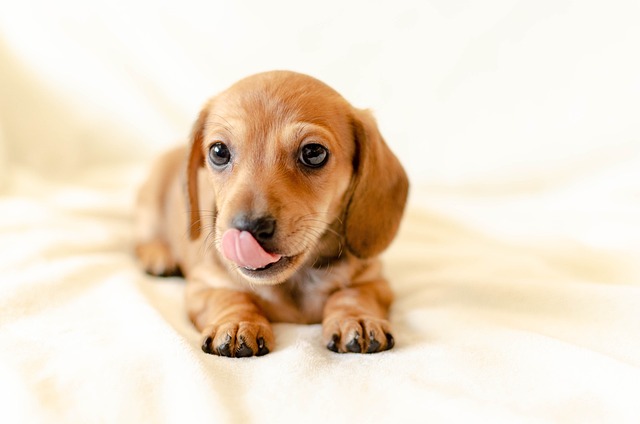
How do i train my dog to be obedient?
Watching your dog dart across the park ignoring your calls isn’t just frustrating—it can put them at risk near busy streets or public spaces.
In our lives, dogs usually appear lively and friendly, bringing people endless joy and companionship. However, there is a group of dogs that, for various reasons, have not been fully socialized, and their state is worrying. Understanding what unsocialized dogs are like helps us better understand them and enables more dogs to lead healthy and happy lives.
The most obvious manifestation of an unsocialized dog is its extreme timidity when facing new environments and strangers. When taken to an unfamiliar place, such as a park or a pet hospital, it may tremble all over, with fear filling its eyes. Its body clings tightly to the ground as it tries to hide itself. Every slight sound can startle it. Even the rustling of leaves in the wind can make it immediately prick up its ears and tense up its body, as if facing a great threat. When a stranger approaches, it will immediately retreat to a corner and may even whimper due to excessive fear. As the owner, seeing one's dog so timid and helpless, the heart is filled with distress, yet one doesn't know how to quickly help it out of this predicament.
When interacting with its own kind, an unsocialized dog also behaves in a way that makes it stand out. In dog social settings, such as a dog park, socially adjusted dogs chase and play merrily, sniffing each other and greeting one another. But an unsocialized dog often stays alone on the side and dares not approach other dogs. If an enthusiastic dog comes over to show friendliness, it may display a scared expression, tuck its tail between its legs, and even assume a defensive posture, such as growling in a low voice or baring its teeth, trying to drive the other dog away. This uncooperative behavior causes it to miss many opportunities to make friends and enjoy the pleasures of social interaction, and it also makes onlookers feel sorry for it.
 In daily life, an unsocialized dog has difficulty adapting to common life scenarios. When there are guests at home, it may hide under the bed or behind the sofa and dare not come out for a long time. When the doorbell rings, it will be frightened into a panic, running around in all directions, and may even urinate or defecate at home due to excessive nervousness. During daily outings, when passing through streets with a lot of vehicles and pedestrians, it will desperately pull back on the leash and be unwilling to move forward. In these situations, the owner will feel very helpless, hoping that the dog can face things bravely while also worrying that it will be overly frightened and get hurt.
In daily life, an unsocialized dog has difficulty adapting to common life scenarios. When there are guests at home, it may hide under the bed or behind the sofa and dare not come out for a long time. When the doorbell rings, it will be frightened into a panic, running around in all directions, and may even urinate or defecate at home due to excessive nervousness. During daily outings, when passing through streets with a lot of vehicles and pedestrians, it will desperately pull back on the leash and be unwilling to move forward. In these situations, the owner will feel very helpless, hoping that the dog can face things bravely while also worrying that it will be overly frightened and get hurt.
From a professional perspective, the insufficient socialization of dogs is often due to a lack of sufficient social experiences during the puppy stage. Puppies between 3 and 14 weeks old are in a crucial period of socialization. If they don't have enough exposure to different people and environments during this stage, it will be difficult for them to learn how to properly deal with various external stimuli. An unsocialized dog is filled with a sense of insecurity inside. It hasn't established trust in the world and can only protect itself by escaping or being defensive.
Although the state of unsocialized dogs is concerning, it is not unchangeable. The owner's patience and correct guidance are of vital importance. One can start with small steps, such as gradually exposing the dog to gentle sounds and slowly approaching strangers, to help it overcome its fear little by little. Every time the dog bravely faces new things, it is a step forward in its growth. Watching an unsocialized dog gradually become brave and confident through one's own efforts, the owner will gain a great sense of achievement.
Although unsocialized dogs face many troubles, as long as we give them enough love, patience, and correct guidance, they can also step out of their small world, integrate into the colorful life, and become happy and friendly companions.

Watching your dog dart across the park ignoring your calls isn’t just frustrating—it can put them at risk near busy streets or public spaces.

New puppy owners often find themselves rushing to clean up accidents before they set in, and that’s where puppy pad training becomes a game-changer.

If you've noticed your dog's waistline disappearing and your veterinarian has mentioned those few extra pounds, your first instinct might be to simply reduce the amount of food in their bowl.

Training a dog to use a designated spot indoors isn’t as daunting as many new owners fear, but it does take consistency and an understanding of your pet’s needs.

That moment of dread on a walk is all too familiar for many new dog owners. You see another dog approaching down the sidewalk of your neighborhood

If the sight of another dog on your neighborhood walk makes your heart sink as your own dog erupts into a frenzy of barking and lunging, you're not alone.